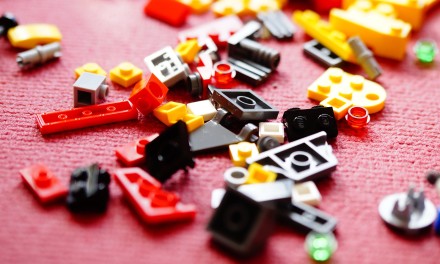The global COVID-19 pandemic has turned the world upside down. Unemployment is at record levels. Most of those who still have a job work from home. And parents have to adjust to their kids attending school from home. In the midst of such upheaval, it can be easy to get down on ourselves. That’s why a recent article published in Behavior Analysis and Practice offered suggestions for parents to increase their psychological well being and practice self-compassion.
Baby Steps
You can sometimes lose motivation by setting big goals that take a while to achieve, like “being a better parent” or “getting in shape.” Instead, give yourself a break and try focusing on the low-hanging fruit – the smaller, easier, wins. This can include kissing your child on the head, taking the stairs more, or substituting that chocolate bar for almonds. Over time, small wins can add up.
Patterns and Trends Matter Most
Don’t beat yourself up over that doughnut. Instead, focus on the larger trend of eating fewer donuts over time. Some days may be better than others but it is the trend that is more important. You can also come to see coercive patterns with family members. One classic pattern is giving your child something they want so they immediately stop whatever it is they were doing that was bothering you. Over time, you risk making the problem worse even though you stopped it in the short term.
Establish Support Networks
Asking for help is sometimes frowned upon these days. Some see it as a sign of weakness. But in times such as these, reaching out and establishing a social support network can make all the difference. And reaching out is easier than ever in today’s social media age.
Practice Mindfulness and Acceptance
Like most other things, mindfulness and acceptance are skills that need practice. And you can practice these skills regardless of whatever else it is you are doing as a parent each day. One general strategy to promote mindfulness involves noticing your body and senses, especially your breathing. Acceptance, by contrast, involves recognizing that we must unavoidably experience unpleasant, or painful things. The authors define it as “an awareness of, and openness to, the inevitable sadness and stress that are part of life.” Most importantly, acceptance can be useful when you are beating yourself up as a parent because you feel you have made mistakes. Acceptance can give you some breathing room from your own mistakes, which allows self-compassion to enter.
Practice Cognitive Defusion
Humans have evolved language because it is extremely useful. And most of us take our own thoughts quite literally as “truth.” But sometimes language can get in the way. Defusion is a process of putting distance between you and your thoughts – recognizing your thoughts as only thoughts. One simple defusion practice is to reframe your thoughts from a fused perspective, such as “I am a horrible parent” to a defused perspective that sees the thought as just a thought, such as “I am having the thought that I am a horrible parent.” The latter is an objective description of a thought. The former is taking your thoughts literally, and making a few assumptions along the way. But our thoughts aren’t always “correct” and sometimes they can actually get in the way. Mindfulness practice can also help you defuse from your thoughts easier over time.
For more details and tips be sure to check out the original article in Behavior Analysis in Practice, which is free to the public.
How are you practicing self-compassion during the pandemic? Let us know in the comments below and be sure to subscribe to bSci21 to receive the latest articles directly to your inbox!









